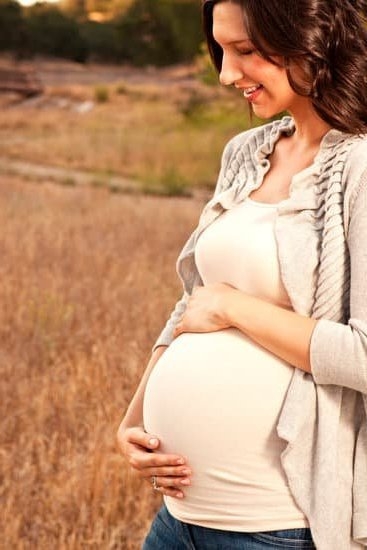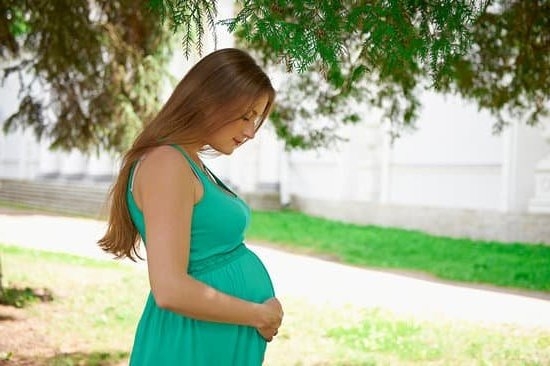Am I Pregnant? Signs and Symptoms to Look For
Pregnancy is an exciting and life-altering event that often comes as a surprise. If you’re trying to determine if you’re pregnant, understanding the symptoms and signs can help. Here are some of the most common signs of pregnancy and how to tell if you’re pregnant.
Missed Period
A missed period is one of the earliest signs of pregnancy that many women experience. If your period hasn’t come on time, this may be a sign of an impending pregnancy.
Changes in Breast Size and Tenderness
Your breasts may become tender or sore due to increased hormone production. You may also notice your breasts becoming fuller or larger.
Nausea or “Morning Sickness”
Nausea and morning sickness is a common symptom of early pregnancy and can start as early as two weeks after conception.
Feeling More Tired Than Usual
If you’re feeling inexplicably tired or exhausted, this could be a sign of pregnancy.
Increased Urination
Frequent urination is a common symptom of pregnancy, usually occurring close to the time when a missed period would be due.
Changes in Appetite
Pregnancy comes with drastic changes in appetite, and you may find yourself feeling hungrier or having sudden strong cravings for certain foods.
Positive Pregnancy Test
The only true way to confirm a pregnancy is to take a pregnancy test, which can detect the hormones that indicate pregnancy. These tests can be purchased over-the-counter at your local pharmacy.
Taking Precautions
If you believe you might be pregnant, even if you haven’t confirmed it with a pregnancy test, it’s important to take the necessary precautions. Avoid cigarettes, alcohol, and certain medications, as they could be harmful to an unborn baby. Talk to your doctor as soon as possible to confirm the pregnancy and get proper care and support.
No matter what the outcome, it’s important to remember that you are not alone. You can talk to a qualified healthcare provider if you are feeling overwhelmed or scared, since there are many resources available for support.
Am I Pregnant?
If you’re wondering if you could be pregnant, the answer is maybe.
The only way to be sure is to take a pregnancy test. Here is an overview of the possible signs and symptoms of pregnancy that you may experience during the different stages.
Signs and Symptoms of Pregnancy
Pregnancy signs and symptoms can vary from woman to woman. Here’s a quick look at some of the most common ones.
In the first few weeks
- Missed period: The most obvious first sign of pregnancy is a missed period.
- Tender or swollen breasts: Your breasts may swell and become tender as early as one to two weeks after conception.
- Fatigue: Extreme tiredness is one of the earliest signs of pregnancy.
- Nausea: Nausea, with or without vomiting, can occur any time of day.
- Frequent urination: The need to pass urine more often than usual, can start as early as one to two weeks after conception.
- High body temperature: Your body temperature may be higher during the early stages of pregnancy.
- Light spotting: Some women experience light spotting or bleeding around the time their periods are due.
- Food cravings and aversions: Pregnant women often experience cravings for certain types of food.
- Mood swings: Mood swings can occur as early as two weeks after conception.
In later stages
- Weight gain: As your baby grows, you may experience rapid weight gain.
- Shortness of breath: Your growing uterus and baby can put pressure on your diaphragm, making it hard to breathe.
- Backache: Lower back pain can occur as your baby grows and your body prepares for labor.
- Swollen ankles and feet: Fluid retention and circulation problems can cause your feet and ankles to swell.
- Skin changes: You may experience patches of darker skin, known as chloasma, or “the mask of pregnancy.”
Other Considerations
If you think you may be pregnant, it’s important to talk to your doctor or visit a clinic for a pregnancy test.
It’s also important to keep in mind that the symptoms of pregnancy can be similar to those experienced before and during your period, so it can be difficult to tell the difference. If you’re in doubt, take a pregnancy test or talk to your doctor.
If your test is positive, it’s important to make sure you get the care you need during pregnancy. This includes proper nutrition and exercise, as well as regular prenatal visits.
Conclusion
If you’re wonder if you’re pregnant, the only way to know for sure is to take a pregnancy test. Symptoms alone cannot determine if you are pregnant, so talking to your doctor is the best way to get an accurate answer.
Once you find out the results, you can make sure to get the care you need to keep yourself and your baby healthy.

Welcome to my fertility blog. This is a space where I will be sharing my experiences as I navigate through the world of fertility treatments, as well as provide information and resources about fertility and pregnancy.





